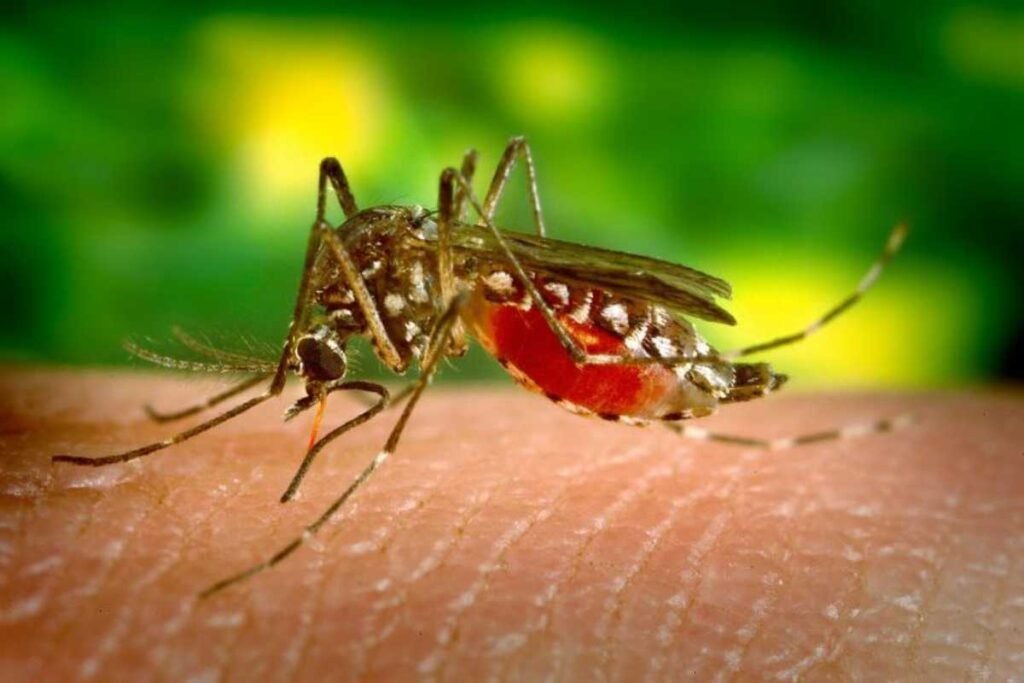Source – news.stanford.edu
Mosquitoes carrying life-threatening diseases such as West Nile virus, Eastern equine encephalitis (EEE), malaria, and dengue are steadily making their way across the U.S. This troubling expansion is being fueled by climate change, which has created more favorable conditions for these disease-carrying insects to thrive.
Rise of West Nile Virus in the U.S.
Since 2000, New York City alone has recorded 490 cases of West Nile virus, a disease transmitted through mosquito bites. West Nile virus was once confined to East Africa and parts of the Middle East, but it has gained a foothold in New York and other parts of the U.S. In 2023, over 1,100 mosquito pools tested positive for the virus, with most located in Queens. By 2024, 39 states had reported cases of West Nile fever. Although the majority of infections cause mild or no symptoms, severe cases can result in long-term neurological damage.
The Deadly Threat of Eastern Equine Encephalitis
Another major concern is Eastern equine encephalitis (EEE), a mosquito-borne virus with a staggering 30% fatality rate. First recognized as a public health threat in 1938, EEE outbreaks have become more frequent, particularly in the northeastern U.S. While still rare, the largest outbreak occurred in 2019, with 38 cases. In 2024, 10 cases were reported across six states, prompting emergency mosquito-spraying efforts in Massachusetts. EEE’s increasing prevalence highlights the growing public health risks posed by mosquito-borne diseases.
Mosquitoes Spreading Multiple Infections
In a troubling new development, individuals are now contracting multiple mosquito-borne diseases at once. In September 2024, a man in New Hampshire was hospitalized with West Nile virus, EEE, and St. Louis encephalitis, all at the same time. Infectious disease expert Chloé Lahondère, from Virginia Tech, notes, “We’re seeing more people infected with several mosquito-borne diseases simultaneously.”
Climate Change and Expanding Mosquito Habitats
The global spread of mosquito-borne diseases is closely linked to climate change. Warmer temperatures allow mosquitoes to thrive in previously inhospitable areas, enabling them to spread diseases such as West Nile, dengue, and malaria. Mosquito species like the Culex coronator, which transmits West Nile and St. Louis encephalitis, have expanded into southeastern U.S. states after being detected in Louisiana in 2004. Similarly, the Aedes mosquitoes, carriers of dengue and Zika, are increasingly found in California and as far north as southern Canada.
“The climate patterns are shifting,” says Desiree LaBeaud, an infectious disease professor at Stanford University. “We had locally acquired malaria in the U.S. for the first time in 20 years last year.” This rise in mosquito-borne diseases is not limited to the U.S. — dengue cases are skyrocketing across Europe, and deadly outbreaks have occurred in Peru.
The Future of Mosquito-Borne Diseases
Mosquitoes are cold-blooded and depend on external temperatures to regulate their life cycles. As temperatures rise, their breeding seasons lengthen, increasing their population and the spread of diseases. Aedes albopictus, which thrives in warmer temperatures, has benefited significantly from climate change and now has a vast range across the U.S. and Europe.
Beyond warming temperatures, climate change is also increasing the frequency of floods and droughts, creating new breeding grounds for mosquitoes. The combination of urbanization, global travel, and environmental changes has accelerated the spread of mosquito populations.
Solutions and Future Outlook
Addressing the spread of mosquito-borne diseases requires both environmental action and scientific innovation. Researchers are exploring genetic engineering to sterilize mosquitoes and using toxic baits to reduce populations. However, public health agencies must also invest in vaccines and preventive measures to combat diseases like dengue, which remains a serious threat.
As scientists develop new strategies to tackle these deadly diseases, one thing is certain: without concerted efforts to combat climate change and mosquito proliferation, the world is heading toward a future where mosquito-borne diseases will affect more people than ever before.
Also Read: New York Resident Dies of Rare Eastern Equine Encephalitis, Sparking Public Health Alert









